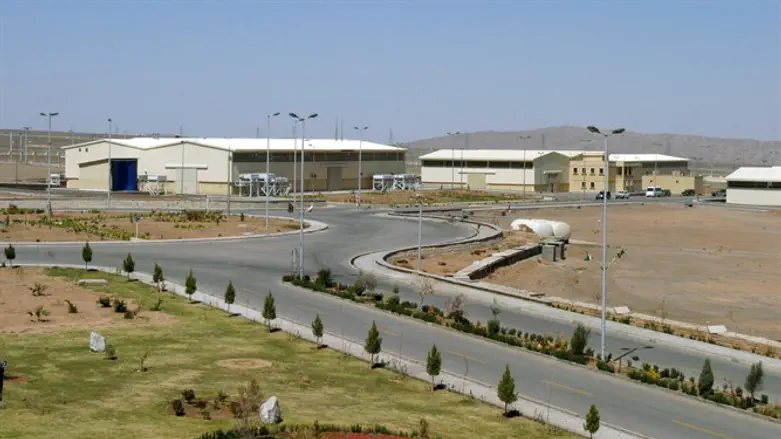
Iran's nuclear chief said on Wednesday that some of the cameras installed by UN nuclear inspectors at Iranian nuclear sites under the 2015 nuclear agreement "were damaged in recent terrorist attacks" and were not replaced due to other deal parties not fulfilling their commitments.
"A number of these cameras were damaged during recent terrorist operations, leading to two extremely harsh and destructive reports" by the International Atomic Energy Agency (IAEA), Mohammad Eslami, head of the Atomic Energy Organization of Iran (AEOI), said, according to the Xinhua news agency.
Eslami noted the cameras required under the Non-Proliferation Treaty's safeguards agreement with the IAEA are working, but those related to the 2015 agreement "were no longer necessary, given the counterparts' non-compliance."
While it is unclear which “terrorist attacks” Eslami was referring to, Iran denounced a "nuclear terrorism" attack on April 13 after a blackout struck the Natanz uranium enrichment facility in central Iran the day before. Iran's then-Foreign Minister, Mohammad Javad Zarif, accused "Israel of being behind the incident."
On July 6, the Iranian government blamed Israel for what it described as "a sabotage act against a nuclear organization building near Karaj city," west of capital Tehran, on June 23.
Eslami’s comments come several days after Iran and the IAEA announced that they had agreed to allow inspectors to service the agency's surveillance equipment as Tehran has restricted access since earlier this year.
IAEA director general Rafael Grossi hailed the agreement and said it allowed space for diplomatic talks.
"This has always been seen, for me at least, as a stopgap, as a measure to allow time for diplomacy," Grossi was quoted as having told reporters at Vienna airport after returning from talks in Iran.
The IAEA chief flew to Tehran for talks aimed at easing a standoff between Iran and the West over talks on reviving the 2015 Iran nuclear deal.
He later said the agreement on servicing the agency's equipment would be put into practice "within a few days, very soon".
Iran has gradually scaled back its compliance with the 2015 deal in response to former US President Donald Trump’s withdrawal from the agreement in May of 2018.
The previous government, headed by former President Hassan Rouhani, had been holding indirect talks with the US on a return to the agreement.
The negotiations were adjourned on June 20, two days after Ebrahim Raisi won Iran's presidential election, and no date has been set for a resumption of dialogue.
US Special Envoy for Iran Robert Malley said recently that Washington "can't wait forever" for Tehran to decide whether it wants to restart the talks.
In response, Iran said the United States is the one that withdrew from the deal, violated the resolution, and threatened those seeking to implement the agreement with punishment.
(Arutz Sheva’s North American desk is keeping you updated until the start of Yom Kippur in New York. The time posted automatically on all Arutz Sheva articles, however, is Israeli time.)